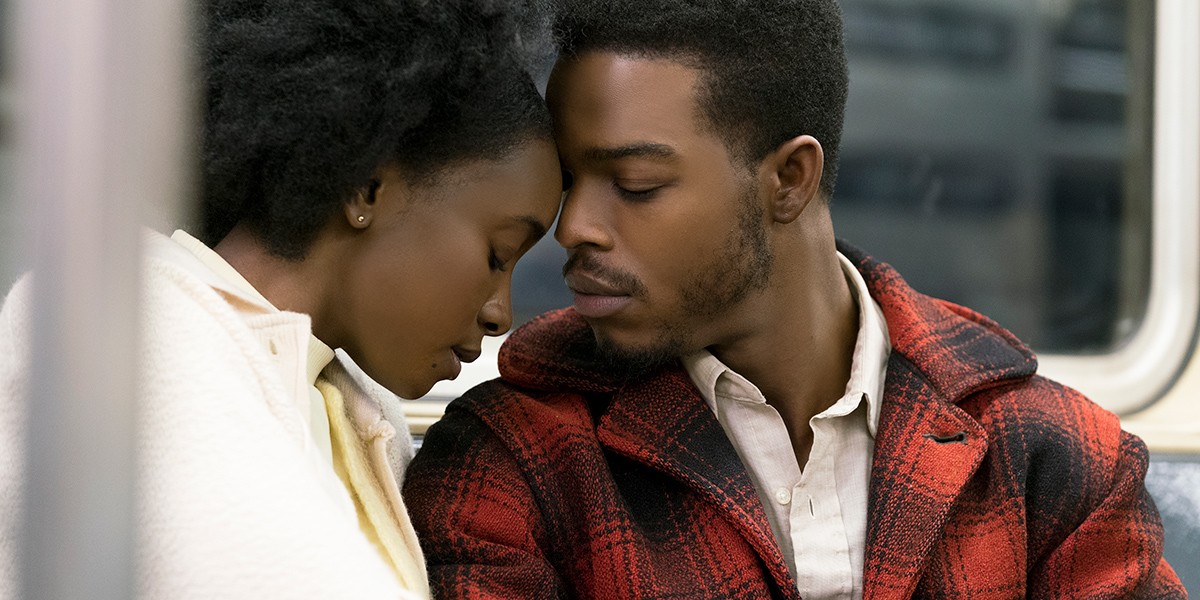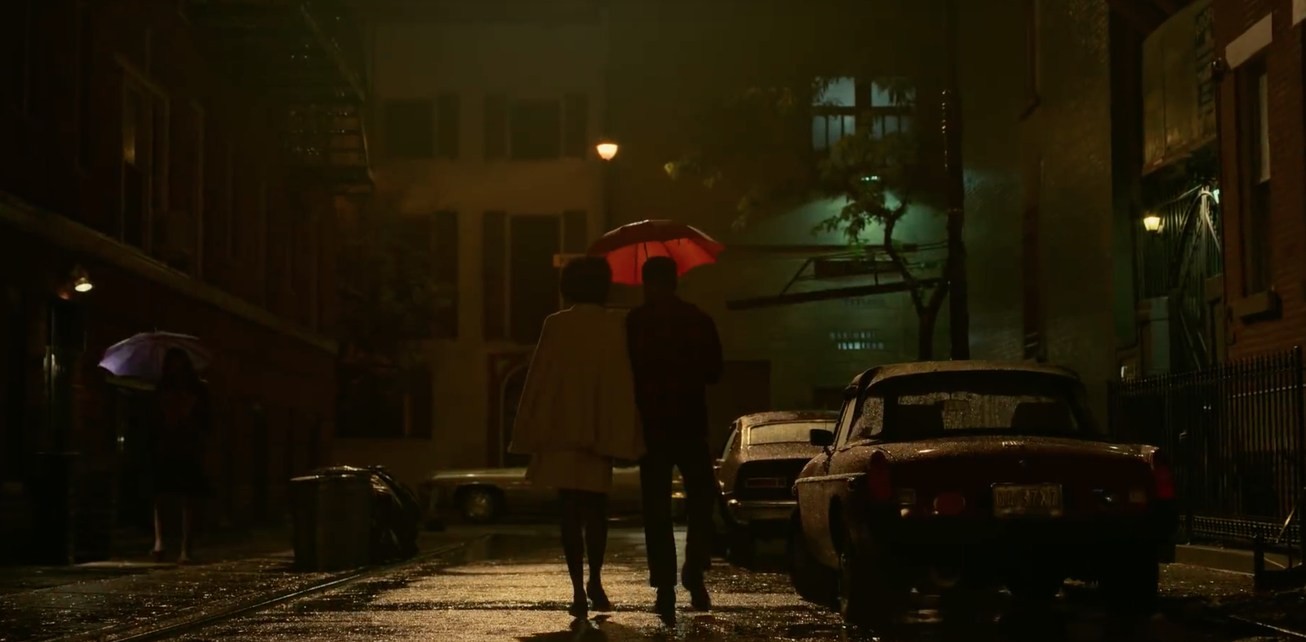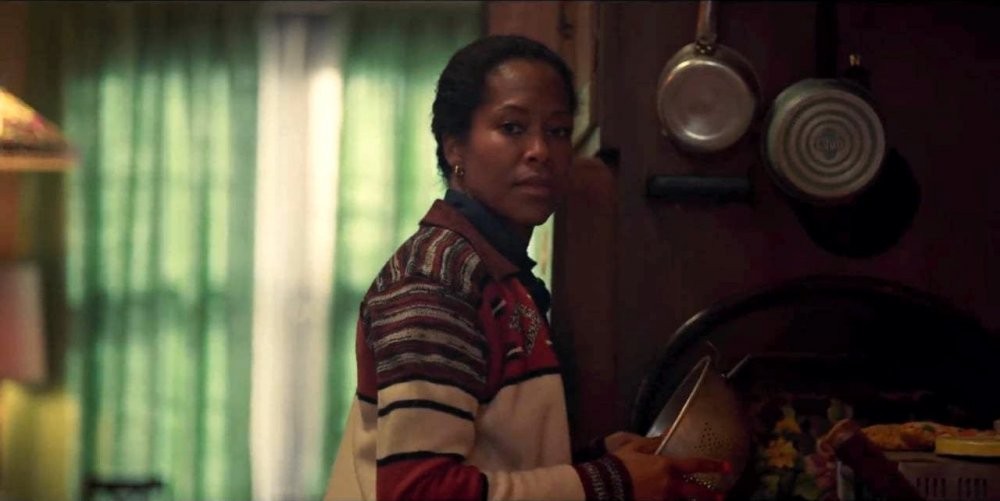
Kiki Layne and Stephan James in If Beale Street Could Talk
Let’s get this out of the way: If Beale Street Could Talk is not set in Memphis. It’s not about Beale Street or the blues, or loquacious rights-of-way. In fact, in the opening epigraph, author James Baldwin says Beale Street is in New Orleans.
James Baldwin may have been geographically challenged, but he was a stone cold literary genius. When he invoked Beale Street in the opening of his 1974 novel, one of the country’s first black-owned business districts existed to him as a lost world of African-American freedom. The name represented the realization of the kind of personal autonomy American capitalism always promises, but which was ultimately denied to people like Tish Rivers (Kiki Layne) and Fonny Hunt (Stephan James), two young, working-class kids from Harlem, who happen to be black.
Tish and Fonny are in love like only 19-year-olds can be. As soon as Fonny gets a new place — he’s got a crappy cold-water flat, but the budding sculptor is looking at a fixer-upper artist’s loft — he’s going to pop the question. But then Fonny gets in the mildest of street hassles, just a little pushing and shoving over Tish’s honor, and all the sudden he’s in the crosshairs of the prison-industrial complex. The racist cop he pisses off that fateful night soon gets an opportunity to frame him for a brutal rape that happened on the other side the city. With Fonny on trial for his life, it is not a good time for Tish to announce she’s pregnant.

Director Barry Jenkins has broken the rule that mediocre books make the best movies. He takes Baldwin’s dauntingly nonlinear literary structure and makes it smooth and easily understandable. Each jump forward and backward in time reveals a little bit more of the story in a way designed to maximize the emotional impact. The ending, when it comes, reveals characters who are forever changed, but unbroken.
Jenkins color sense is second to no one working today. I think he invented some new, tastefully early-70s hues especially for this movie. The film’s recreation of 1970s Harlem is flawless, and, knowing Jenkins, done efficiently. Jenkins loves to work in close up, or with his camera fixed on an effortlessly flawless composition. When his camera does move, it flows through space.
Every performance on the screen, from Layne’s heartbreakingly naive Tish, interrupted on the edge of lasting happiness, to Colman Doming bringing laughing gravitas to the role of her father, feels fully human. As Tish’s mother, Regina King puts on a one-woman Strasberg-ian acting clinic.

Regina King as Sharon Rivers
It all comes together in an emotionally epic scene where Tish and Fonny’s families grapple with the reality of a new baby on the way. If my description makes this film sound like a downer, it’s not. Tish’s family’s first reaction is to rejoice at the prospect of a new member. They know Tish and Fonny’s love is real. It’s different with Fonny’s family. His religious mother (Aunjanue Ellis, tightly wound) lashes out at the Rivers family, while the two grandads-to-be hatch plots to pay for it all. It’s a deeply humane and instantly recognizable scene that, if removed from the larger context, would be the best short film of the year.
But the tender pas de deux between Tish and Fonny, told intermittently between scenes of fear and despair, is the beating heart of the picture. Is there anyone who does romance better than Jenkins? The couple’s wide-eyed innocence, an emotion never available to the brutally repressed Charon Harris in Moonlight, is pure joy to behold. If, as Roger Ebert said, movies are machines to create empathy, then Jenkins is our greatest empathetic engineer.
Together, Baldwin and Jenkins celebrate the love that flourishes in the midst of tragedy and injustice. Jenkins came up from the indie underground, emerging from Miami in 2008 with Medicine for Melancholy and going on to win Best Picture for 2016’s Moonlight. He found the perfect material to adapt in If Beale Street Could Talk. Its examination of the human cost of the carceral state and indictment of institutions of justice that wink at racism as long as the conviction numbers stay high is, sadly, as relevant as ever.
If Beale Street Could Talk